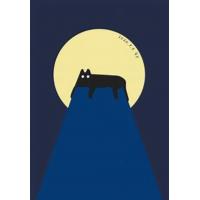Chapter 1:Why is Brave New World a classic
Impactful Exploration of Dystopia: The novel presents a compelling and disturbing vision of a future society that has resonated with readers for decades. It offers a thought-provoking critique of the potential dangers of a highly controlled and dehumanized world.
Prophetic Vision and Relevance: Aldous Huxley's foresight in envisioning elements of our present and future society adds to the book's significance. He anticipated technological advancements, genetic engineering, consumerism, and other societal changes that continue to be relevant today.
Thought-Provoking Themes: "Brave New World" explores themes such as individuality, freedom, conformity, the price of happiness, and the role of technology. These themes invite readers to reflect on their own societies and question the values and trade-offs in pursuit of progress.
Intellectual Depth and Philosophical Exploration: Huxley delves into philosophical questions about human nature, the meaning of life, the role of pleasure, and the consequences of suppressing emotions. His exploration of these deeper ideas elevates the novel to a work of intellectual and philosophical significance.
Literary Merit and Influence: Huxley's masterful storytelling, engaging characters, and evocative language contribute to the enduring impact of "Brave New World." Its literary craftsmanship and innovative narrative techniques have influenced subsequent dystopian works and solidified its place as a literary classic.
Chapter 2:Brave New world characters
Bernard Marx: Bernard is an Alpha Plus who feels like an outsider in the highly conformist society. He questions the principles of the World State and grapples with his own identity.
Lenina Crowne: Lenina is a Beta Plus who works at the Central London Hatchery and Conditioning Centre. She embodies the values of her society, initially finding contentment in fulfilling her assigned role but later becoming intrigued by Bernard's differences.
John the Savage: John, also known as "the Savage," is the son of Linda, a woman from the World State who became stranded on a Native American reservation. Raised with traditional values, John struggles to reconcile his upbringing with the dystopian world he encounters.
Mustapha Mond: Mustapha Mond holds a position of power as one of the World Controllers. He possesses knowledge of the past and plays a significant role in enforcing the rules and philosophy of the World State.
Helmholtz Watson: Helmholtz is an Alpha Plus lecturer who feels a sense of dissatisfaction with the limitations of his society. He forms a close friendship with Bernard and shares his desire for deeper meaning and experiences.
Linda: Linda is John's mother, who was accidentally left behind on the reservation. Linda struggles to adapt to the World State upon her return and becomes a symbol of the clash between the two worlds.
Chapter 3:Brave New world quotes
"Community, Identity, Stability." - The World State's motto encapsulating its values and goals.
"A gramme is better than a damn." - Henry Foster, highlighting the society's focus on instant gratification rather than deep emotions.
"Words can be like X-rays if you use them properly -- they'll go through anything. You read and you're pierced." - Mustapha Mond, illustrating the power of words and ideas to challenge societal norms.
"Civilization has absolutely no need of nobility or heroism. These things are symptoms of political inefficiency." - Mustapha Mond, expressing the state's belief that individuality and personal sacrifice disrupt social stability.
"But I don't want comfort. I want God, I want poetry, I want real danger, I want freedom, I want goodness. I want sin." - John the Savage, expressing his desire for a more meaningful and authentic existence.
"Actual happiness always looks pretty squalid in comparison with the overcompensations for misery." - Mustapha Mond, highlighting how the pursuit of happiness in the World State often involves shallow pleasures and escapism.
"Ending is better than mending." - Slogan promoting consumerism and the idea of replacing items rather than repairing them.
- 00:00Kapitel 1
RSS Feed
Apple Podcast
Google Podcast
Spotify
Deezer
Wähle deinen Podcatcher oder kopiere den Link:
https://meinpodcast.de/reading-recap-book-summaries/feed

